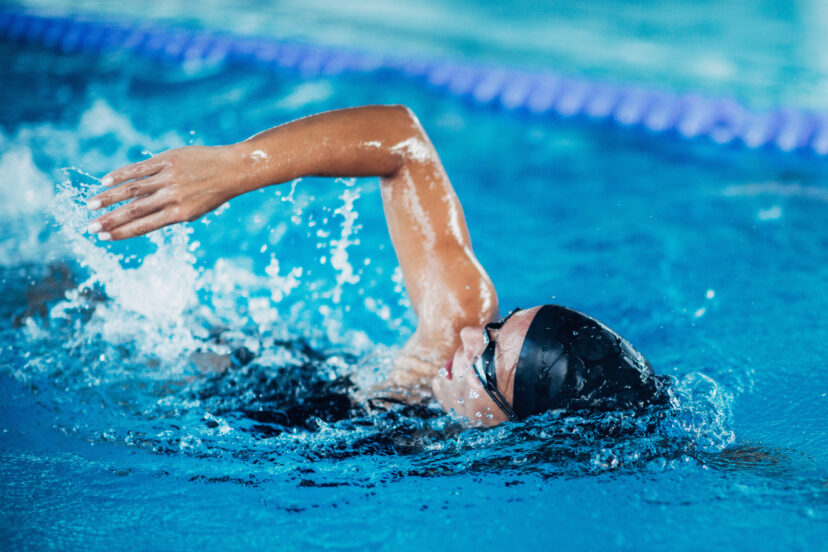Swimmer’s ear, medically known as otitis externa, is a painful infection of the outer ear canal often caused by moisture becoming trapped in the ear. Whether you’re a frequent swimmer or simply live in a humid environment, this condition can affect anyone, especially children.
What Causes Swimmer’s Ear?
Swimmer’s ear usually occurs when bacteria-laden water enters and remains in the ear canal. Despite what many think, even treated swimming pools carry bacteria. However, natural bodies of water like lakes, rivers, and oceans—especially during warm weather—are more prone to harboring bacteria. When this water doesn’t drain properly from the ear, it creates a warm and moist environment where bacteria thrive, leading to infection.
The swelling and inflammation caused by the infection can lead to severe discomfort due to the narrow structure of the ear canal, amplifying the pain.
Who Is Most at Risk?
Swimmer’s ear cases spike during summer, particularly from June to August. Children are especially vulnerable due to their smaller ear canals, which are more likely to trap water. However, the condition can affect anyone, including non-swimmers who live in hot and humid areas. Wearing hearing aids or earbuds can also increase the risk by preventing proper airflow, leading to trapped moisture.
It’s important to note that swimmer’s ear is different from a middle ear infection, which is typically linked to upper respiratory issues and affects a different part of the ear.
Recognising the Symptoms of Swimmer’s Ear
Early signs of swimmer’s ear include a feeling of fullness in the ear and muffled hearing. As the infection progresses, more severe symptoms develop, such as:
– Intense ear pain
– Swelling and redness around the ear
– Discharge from the ear
– A sensation of clogged ears
How Is Swimmer’s Ear Treated?
If you suspect swimmer’s ear, it’s crucial to seek medical treatment. The infection won’t resolve on its own and usually requires antibiotic ear drops combined with steroids to reduce inflammation. In more severe cases, oral antibiotics may be necessary. While symptoms typically improve within a few days, it’s important to complete the entire course of treatment to prevent recurrence.
How to Properly Apply Ear Drops:
To ensure the drops reach the infection, follow these steps:
1. Lie down or tilt your head with the affected ear facing upwards.
2. Place the prescribed drops into the ear canal.
3. Stay in this position for 3-5 minutes to allow the medication to fully coat the canal.
4. You can also use a cotton ball to help retain the drops.
Keeping Ears Dry During Recovery
During treatment, it’s essential to keep the ears dry. Doctors often recommend avoiding swimming for at least two weeks. If swimming is necessary, use earplugs or ear bands. When showering, protect your ears with waterproof earplugs or cotton balls coated in petroleum jelly.
The Role of Earwax and Q-Tips
While it may be tempting to use Q-tips to clean the ears, this can actually increase the risk of swimmer’s ear. Earwax serves as a natural barrier, preventing moisture from penetrating the ear canal. Regularly using cotton swabs to remove earwax can lead to small abrasions, providing entry points for bacteria. Individuals with conditions like eczema or psoriasis are also more susceptible to swimmer’s ear due to frequent itching and scratching of the ears.
Can Swimmer’s Ear Lead to Hearing Loss or Tinnitus?
Although swimmer’s ear can cause temporary hearing loss, it usually resolves with treatment. Tinnitus, or ringing in the ears, can also occur but is typically short-lived.
Preventing Swimmer’s Ear
To minimise the risk of swimmer’s ear, follow these preventive measures:
– Thoroughly dry ears with a towel after swimming.
– Tilt your head to each side to help water drain from the ear canal.
– Use earplugs or swim bands when swimming, especially in natural bodies of water.
– Avoid inserting anything into your ears, including cotton swabs.
– Consider using a hairdryer on its lowest setting to gently dry your ears after exposure to moisture.
If you or your child develop symptoms of swimmer’s ear, don’t let it ruin your summer. Prompt treatment can ease discomfort and have you back in the water quickly.
For professional advice contact The Hearing Clinic UK on 0333 320 7788, where our expert team can help you recover swiftly and prevent future infections.






